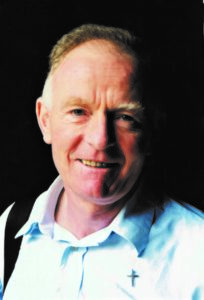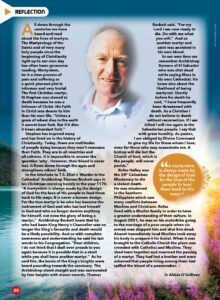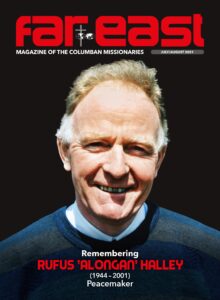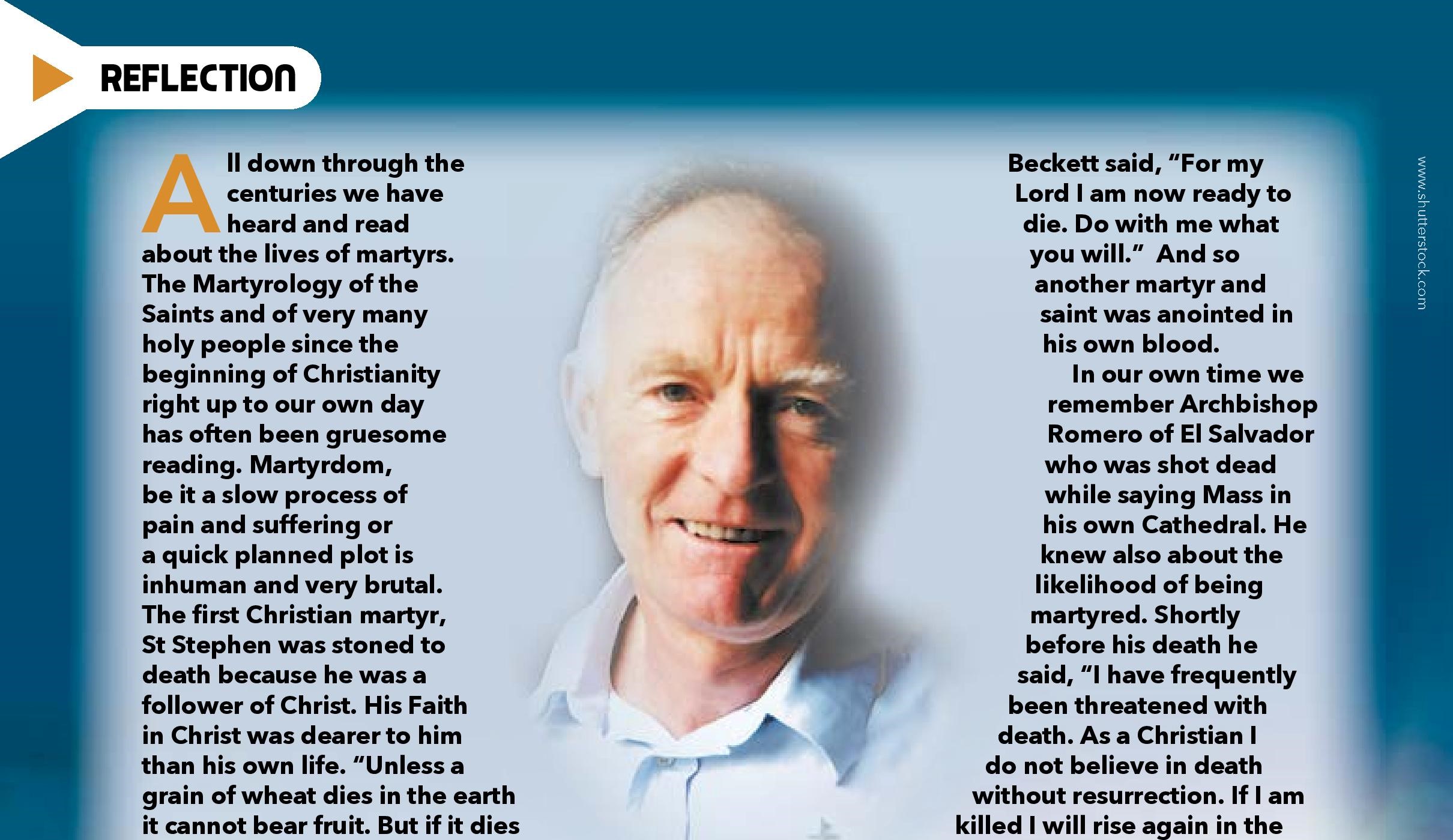All down through the centuries we have heard and read about the lives of martyrs. The Martyrology of the Saints and of very many holy people since the beginning of Christianity right up to our own day has often been gruesome reading. Martyrdom, be it a slow process of pain and suffering or a quick planned plot is inhuman and very brutal.
The first Christian martyr, St Stephen was stoned to death because he was a follower of Christ. His Faith in Christ was dearer to him than his own life. “Unless a grain of wheat dies in the earth it cannot bear fruit. But if it dies it bears abundant fruit.”
Stephen has inspired many and has lived on in the history of Christianity. Today, there are multitudes of people dying because they won’t renounce their Faith. They are in all countries and all cultures. It is impossible to answer the question ‘why’. However, their blood is never lost. It flows down through the ages and strengthens others’ faith.
In the interlude to T.S. Eliot’s ‘Murder in the Cathedral’ Archbishop Thomas Beckett says in his Christmas morning homily in the year 1170, “A martyrdom is always made by the design of God for the love of His people to lead them back to His ways. It is never a human design. For the true martyr is he who has become the instrument of God and who has lost himself in God and who no longer desires anything for himself, not even the glory of being a martyr.”

Fr Rufus Halley SSC
Archbishop Beckett knew that he who had been King Henry’s Chancellor was no longer the King’s favourite and death would be a likely possibility. And so with complete awareness and understanding he said his last words to his Congregation.
“Dear children, I do not think that I shall ever preach to you again because it is possible that in a short while you shall have another martyr.” As he said this, the boots of the King’s knights were heard pounding towards the sanctuary. The Archbishop stood straight and was surrounded by four knights with drawn swords. Thomas Beckett said, “For my Lord I am now ready to die. Do with me what you will.” And so another martyr and saint was anointed in his own blood.
In our own time we remember Archbishop Romero of El Salvador who was shot dead while saying Mass in his own Cathedral. He knew also about the likelihood of being martyred.
 Shortly before his death he said, “I have frequently been threatened with death. As a Christian I do not believe in death without resurrection. If I am killed I will rise again in the Salvadorian people. I say that with great humility. As pastor, I am obliged by Divine Command to give my life for those whom I love, even for those who may assassinate me. A bishop will die but the Church of God, which is the people, will never perish.”
Shortly before his death he said, “I have frequently been threatened with death. As a Christian I do not believe in death without resurrection. If I am killed I will rise again in the Salvadorian people. I say that with great humility. As pastor, I am obliged by Divine Command to give my life for those whom I love, even for those who may assassinate me. A bishop will die but the Church of God, which is the people, will never perish.”
Rufus Halley was the 24th Columban Missionary to die a violent death. He was missioned in the Southern Philippines which saw many conflicts between Muslims and Christians. Rufus lived with a Muslim family in order to have a greater understanding of their culture.
In August 2001, he was on his motorbike going to the marriage of a poor couple when six armed men stopped him and shot him dead. Almost immediately local Muslims took away his body to prepare it for burial. When it was brought to the Catholic Church the place was crowded with Catholics and Muslims. They shed tears together and mourned the passing of a martyr. They had lost a brother and were ashamed that people living among them had spilled the blood of a peacemaker.
“No one can have greater love than to lay down one’s life for a friend.”
Sr Abbie O’Sullivan
This Reflection is published in the current edition of the Far East magazine. Subscribe here: https://columbans.ie/product/issue-july-august-2021/


